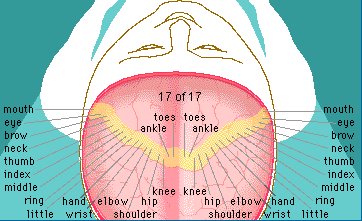How does your brain work?
Your brain is the hub of your nervous system. It is made up of 100 billion nerve cells - about the same as the number of trees in the Amazon rainforest. Each cell is connected to around 10,000 others. So the total number of connections in your brain is the same as the number of leaves in the rainforest - about 1000 trillion.
Your nervous system has two parts:
Central nervous system
Your spinal cord receives information from the skin, joints and muscles of your body. It also carries the nerves that control all your movements. Your brain is the most complicated part of your nervous system. It receives information directly from your ears, eyes, nose and mouth, as well as from the rest of your body via the spinal cord. It uses this information to help you react, remember, think and plan, and then sends out the appropriate instructions to your body.
Peripheral nervous system
Some of your peripheral nervous system (PNS) is under your voluntary control - the nerves that carry instructions from your brain to your limbs, for example. As well as controlling your muscles and joints, it sends all the information from your senses back to your brain. Other parts of your PNS are controlled by the brain automatically. This is the autonomic nervous system. It manages some things your body does 'without thinking' like digestion and temperature control.
Monday, July 30, 2007
Subscribe to:
Post Comments (Atom)

http://www.windyweb.com/stop.htm














No comments:
Post a Comment